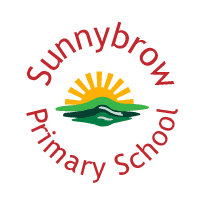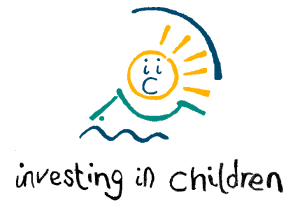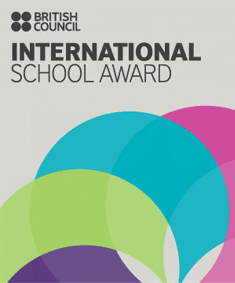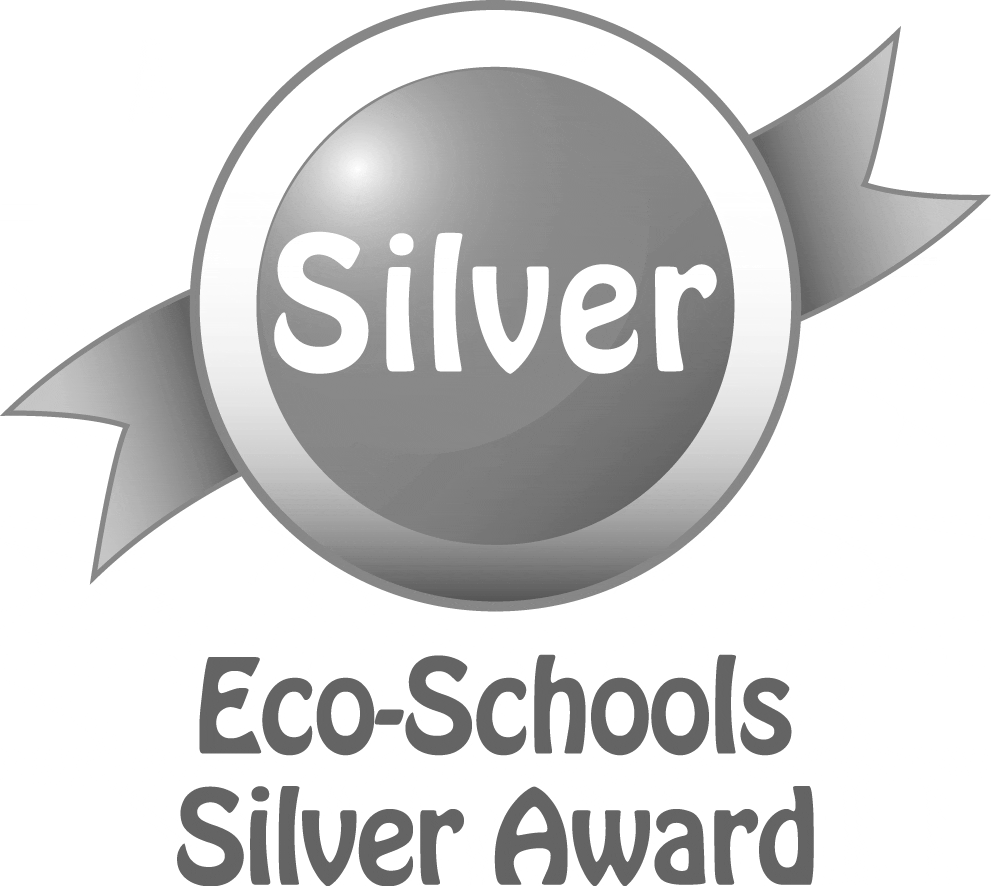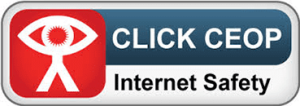Our vision for Reading:
At Sunnybrow Primary School, reading plays an integral role in our mission to empower our pupils to exceed. We firmly believe that reading is a gateway into the wider world: it not only enables children to learn new facts and to increase their knowledge, but it also opens them up to a world of new stories, cultures, experiences and opportunities. 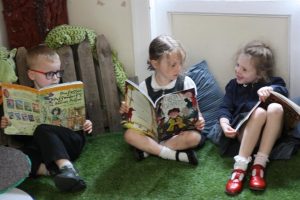
We want our children to develop their fluency in reading and provide opportunities for them to develop their vocabularies so that they are more-able to access a wider range of texts and expand their horizons to a world outside of Sunnybrow.
As a result of this, we make reading a priority in school and immerse our children in a reading rich environment and expose them to a wide and varied reading experience.
As a school, we understand the pressures of social deprivation and the impact this can have on resources at home and the scope that families have to effectively support the many aspects of school life. In recognition of this, we strive to ensure that all children have access to a high quality literacy experience that will enable them to reach their full potential while at Sunnybrow Primary and prepare them effectively for the next stage in their educational journey.
We want children to enjoy reading the wide range of texts that they experience at school. By guiding children to reflect on the texts they have read in terms of their own likes and dislikes we feel that children will become more able to select their own texts more effectively in the future which will help in fostering an enjoyment of reading.
We also want our children to see that reading has a purpose, that it is an important life skill and that an ability to read will serve them well and improve their life chances. As part of this, we want the children to understand that reading isn’t always from a book. They can read newspapers, comics and blogs among others.
Our Intent:
At Sunnybrow Primary School, reading is a top priority and is a key driver within our curriculum.
It is our intention to ensure that by the end of their primary education, all pupils are confident and competent readers, who can read fluently and with confidence in any subject. We intend all children to leave Sunnybrow Primary School with a rich vocabulary that provides them with the ability to play and manipulate language, recognising the nuance of meaning and how language can be used for a range of purposes. We want children to have the confidence to be able to communicate effectively in a variety of situations both now and in the future. We therefore intend to encourage all pupils to read widely across both fiction and non-fiction to develop:
– knowledge of themselves and the world in which they live;
– to establish an appreciation and love of reading;
– to gain knowledge across the curriculum;
– and develop their comprehension skills.
We are committed to providing quality, vocabulary-rich reading material, which immerses and enhances all pupils’ wider knowledge of the spoken and written word, through modern and classic children’s literature and non-fiction texts.
We have outlined a set of ‘end of year’ expectations for every year group.
| EYFS & KS1 expectations | Lower KS2 Expectations | Upper KS2 Expectations |
|---|---|---|
| Reading EoY Expectations EYFS & KS1 | Reading EoY Expectations Lower KS2 | Reading EoY Expectations Upper KS2 |
Our Implementation:
Good early reading provision is key. Children need to be given the building blocks to become competent readers and this must be embedded early; good quality phonics teaching is an important part of this.
Phonics
To be able to read, children need to be taught an efficient strategy to decode words. That strategy is phonics. Phonic decoding skills must be practised until children become automatic and fluent reading is established.
Our children begin engaging in phonics activities as soon as they start Nursery. There are at least 2 planned phonics sessions per week (more depending on the amount of hours pupils access). By working with children at an earlier age we are able to address gaps in skills and knowledge and ensure that Phase 1 of Letters and Sounds is thoroughly embedded so that the children are prepared for the Reception class curriculum expectations.
Phonic teaching and assessment is rigorous. We use Little Wandle Letters and Sounds Revised which is a Systematic Synthetic Phonics programme. There is a consistent structure to phonics teaching in EYFS and Key Stage 1.
We prioritise the teaching of phonics; we teach phonics daily in Year R and Year 1. Reception children start the programme from week 3 of Autumn term. It is vitally important that children review and revisit Grapheme Phoneme Correspondences (GPCs) and words, daily, weekly and across terms and years, in order to move this knowledge into the children’s long term memory. Our consistent approach to phonics ensures that children are given the best possible foundation for reading, writing and language skills.
Children need to learn to read as quickly and reasonably as possible, so that they can move from learning to read, to reading to learn, giving them access to the treasure house of reading. Our expectations of progression are aspirational yet achievable; children who are not keeping up with their peers are given additional practice immediately through keep-up sessions.
On-going assessment of children’s progress takes place and the books children read in school and take home to read are fully decodable and matched to children’s secure phonics knowledge. As well as fully decodable books, children take home a non-decodable book for sharing that can be either read to or with them. These books play an essential role in developing a love of reading; an important distinction is that these books are being shared with the children, but they are using fully phonically decodable books to practise their independent reading.
Regular assessments also allow staff to ensure that children ‘keep up’. Children requiring extra support are identified and appropriate daily ‘keep up’ intervention is delivered by a trained member of staff. Phonics intervention (Rapid Catch-up) continues beyond the Year 1 Phonics screening check for the children who need it.
Little Wandle phonics and early reading policy
Reading beyond phonics
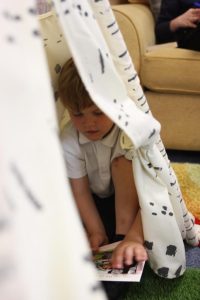
At Sunnybrow Primary School, every book our children read has a purpose. We use a two-pronged approach to developing reading fluency and comprehension: Independent/Group Reading and Shared reading.
Independent & Group Reading
The primary purpose of the independent book is to develop reading fluency and prosody. We have developed a reading spine for independent reading books, made up primarily of Collins ‘Big Cat’ reading scheme texts. For children from Year 2 onwards, who are reading at a greater depth, we have developed a list of ‘must reads’ for each year group that children can self-select from to supplement their reading spine text.
To find out more about our approach independent & group reading, click here.
Shared Reading
We use Shared Reading as our primary approach for teaching reading comprehension skills. It is also used to teach reading with fluency and prosody. Children are taught the skills of reading (outlined in the National Curriculum and the KS1 and KS2 content domains) through the use of VIPERS which were created by Rob Smith (The Literacy Shed).
VIPERS is an anagram to aid the recall of the 6 reading domains as part of the UK’s reading curriculum. They are the key areas which we feel children need to know and understand in order to improve their comprehension of texts and stand for:
Vocabulary 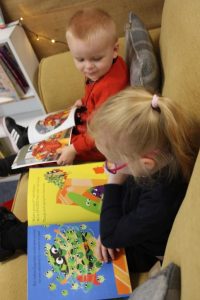
Inference
Predict
Explain
Retrieve
Sequence or Summarise
The 6 domains focus on the comprehension aspect of reading and not the mechanics: decoding, fluency, prosody etc. As such, VIPERS is not a reading scheme but rather a method of ensuring that teachers ask, and students are familiar with, a range of questions. They allow the teacher to track the type of questions asked and the children’s responses to these which allows for targeted questioning afterwards.
To find out more about our approach to shared reading, click here.
Reading for pleasure
We want our children to be life-long readers. Our English curriculum is based around high quality texts and poems. As well as ‘Shared texts’, we have also carefully developed a Class reading spine, which includes a core range of books and poems that we share and re-share purely for pleasure.
We have a well-stocked library, which is regularly monitored and updated to ensure there is a range of diverse, lively, engaging texts for pupils to take home and share with their families. Each class also has a mini-library in their reading corner. Any spare time in class is spent reading and getting lost in a good book!
What’s the impact?
The main source of impact will always remain the quality and breadth of work seen in pupil’s books and the learning environment. We ensure there are always opportunities for application of learning within and across subject disciplines. The impact on our children is clear: progress, sustained learning and transferrable skills.
In lessons you will see that children are engaged and eager participants in reading sessions in school. They respond well to the texts that the teachers have selected for their teaching resources.
As children move through the school, you will see that they increase in confidence and fluency in their reading. They are more-able to use expression when reading aloud.
Children show increasing skill in analysing, discussing and explaining different aspects of texts.
Impact is measured through assessment for learning opportunities and through summative assessments. Teachers use our small steps progression grids to help them accurately assess and plan for pupil progress. Statutory Reading Tests are completed as required. These results are measured against the reading attainment of children nationally.
Phonics is regularly assessed throughout the year using the Little Wandle Letters and Sounds Revised assessment grids. At the end of Year 1 pupils will complete the Year 1 phonics screening check. For those children who did not meet the standard in Year 1, they will re-sit the screening check in Year 2.
Judgements on the impact of the curriculum on pupils is based upon a triangulation of different monitoring and evaluation activities within school. Work and book scrutiny, pupil voice discussions, outcomes of assessments and quality of teaching and learning are all used as tools to help senior leaders assess the impact of the curriculum.
How can I help my child become a better reader?
As with anything, performance improves with practice. Encourage your child to read at home. Create a culture of reading in your household by reading with your child, starting a home library, visiting your local library or bookshop on a regular basis, letting your child see you reading and discussing books that each of you have read.
When supporting your child with phonics, it is really important to model using ‘pure’ sounds. Little Wandle have some brilliant videos to help with pure sounds and blending.
